How to Find out Who’s Texting You (2025)

Your phone buzzes with a text from an unknown number. Is it an old friend with a new number, a persistent harasser, or a case of mistaken identity? In some cases, it could be something disturbing. Take, for instance, a 26-year-old woman who recently posted on Reddit about receiving an anonymous text accusing her partner of cheating.[1]
So, who is it really, and can you trust their claims? You need to sleuth out the truth. Here we’ve done the legwork – after testing numerous methods and products, we’ve narrowed it down to 6 methods that are effective in helping you find out who is texting you. Read on…
![]() Key Takeaway
Key Takeaway
- Manual search: Run an online search for publicly available info.
- Detailed info needed: We recommend BeenVerified for personal background reports.
- Social verification: Check money apps (Venmo/PayPal) and social platforms for profiles.
- Other useful methods: CallerID apps or ask directly.
💡Before diving into the detective work, let’s cover some essential safety tips:
- Avoid clicking links, opening attachments, or downloading files
- Be cautious of any requests involving money – these could be scams
- Don’t engage with persistent spam or harassment
(For more guidance on handling unknown texts, check out our FAQs)
Method 1: Do an online search
One of the easiest ways to find information about an unknown number is through search engines like Google or Bing. These tools scan the internet for online presence associated with the phone number. If it’s posted anywhere online, search results may reveal the owner’s name, location, or other details.
Here are some useful tips:
- Try a different number format: Numbers are often mentioned in different formats, so apart from the standard (123)456-7890, you can also experiment with variations excluding the brackets, the hyphen, or both because they may give you different results. In my testing with one particular number (which I won’t share here for privacy concerns), I initially found no matches with the standard format, but when I removed the hyphen, I succeeded in locating the post in which the poster put up their name and phone number for contact.
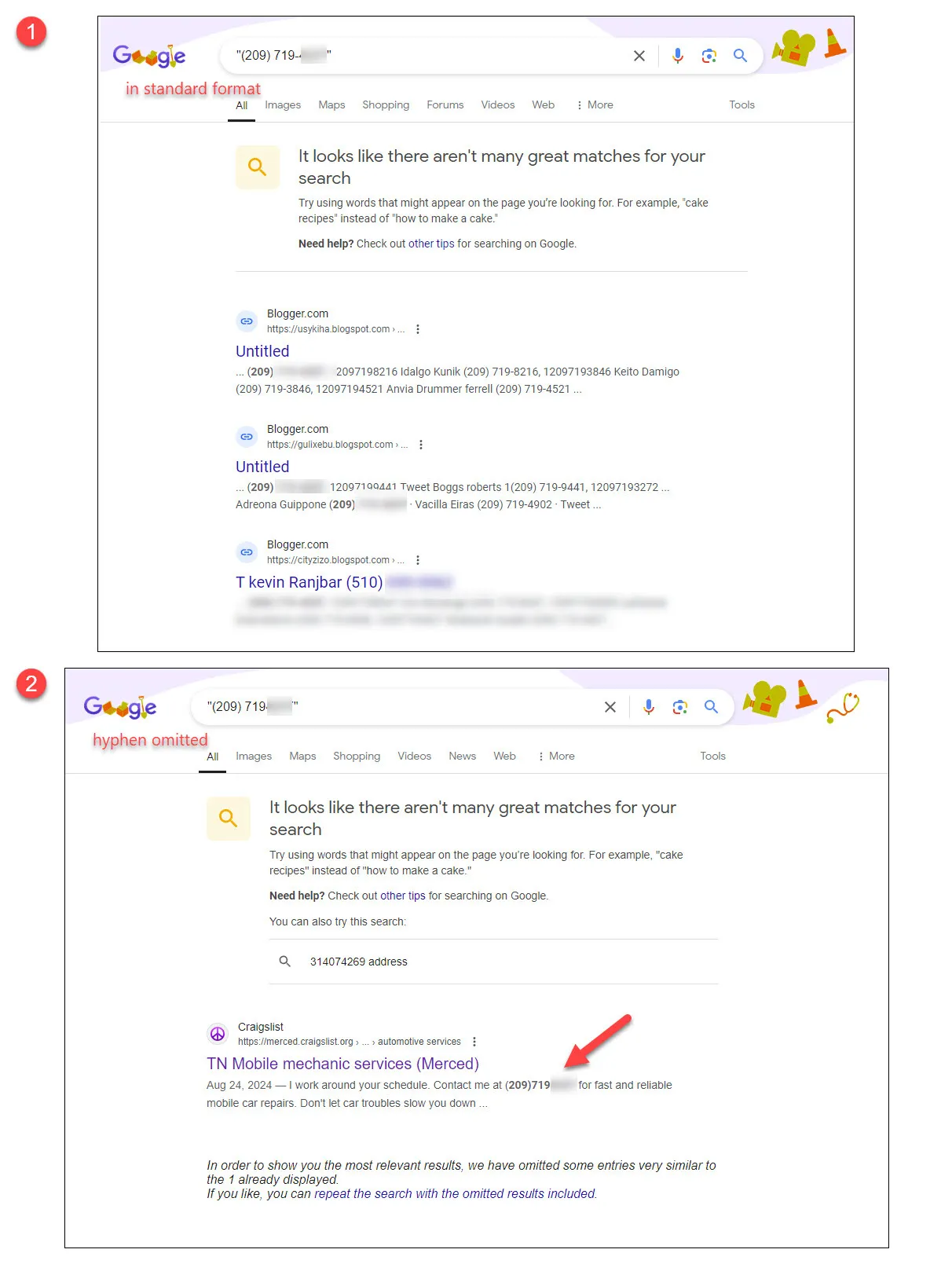
- Put the number in quotation marks: By enclosing the phone number in quotes (e.g., “123-456-7890”), you’re telling Google to search for that exact phrase (phone number), which potentially leads you straight to pertinent information.
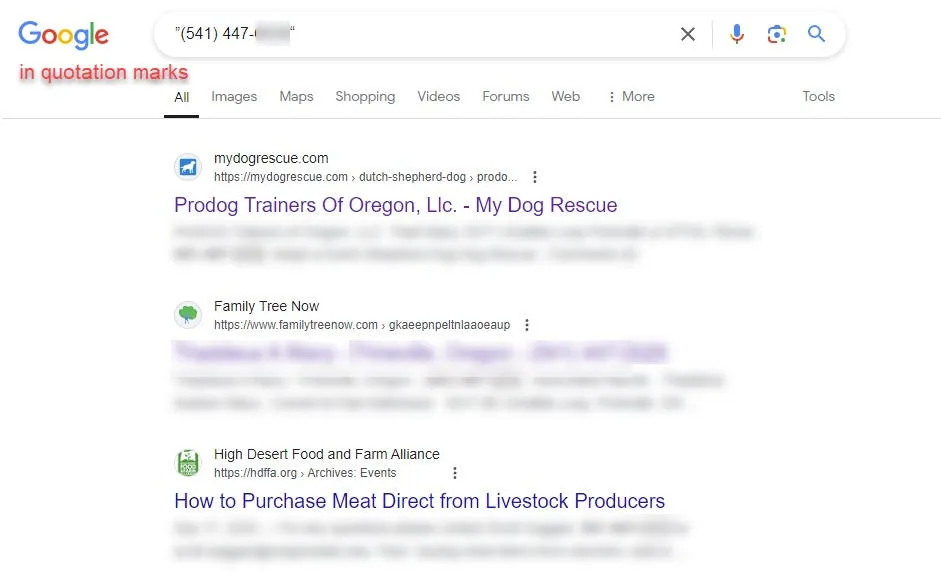
However, if putting the number in quotation marks returns zero results, it likely means the number isn’t listed publicly in that exact format anywhere indexed by Google. In this case, there’s no need to proceed with the following tips – instead, try a different number format or move on to our other methods. - Use the site operator: The site operator allows you to search for the exact phone number within a specific website. This could be helpful if you suspect the unknown texter may be associated with a particular site, such as a social media platform or online marketplace, or if you’re trying to confirm their identity based on their claims.
Example: “123-456-7890” site:craigslist.org.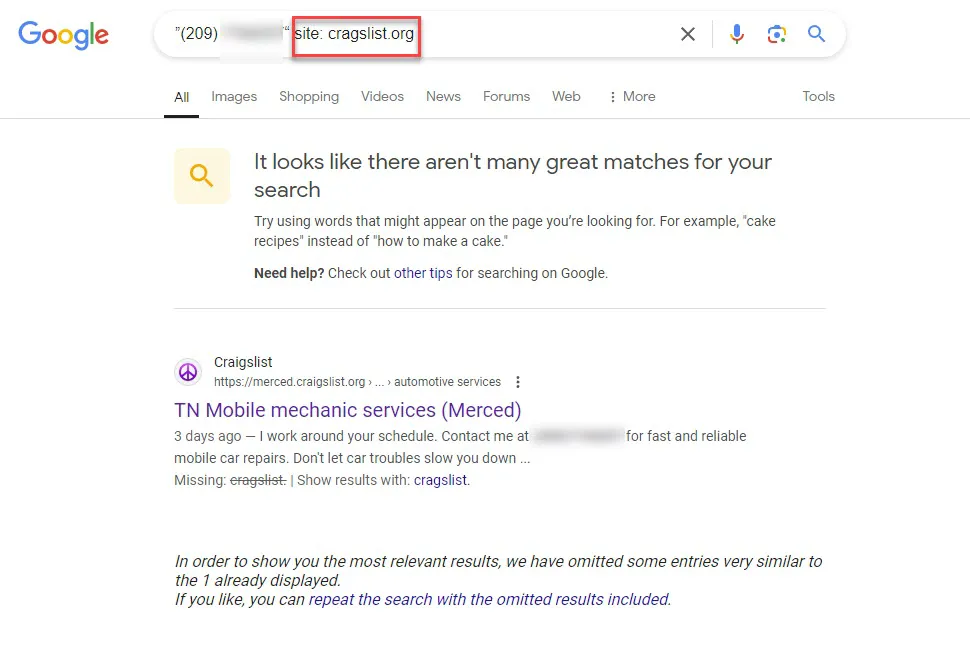
- Combine clues: If you have any additional information about the unknown texter – location, profession, social media handles – you can incorporate these details into your search along with the phone number. For example, let’s say the unknown texter mentioned they are a lawyer in Chicago. You could combine these details with the phone number in your search, like so: “(123) 456-7890” lawyer Ohio. Also, if you suspect the text is likely a scam, type the number and scam to see if any pages confirm your suspicion.

![]() Pro tip: Take note of online directories
Pro tip: Take note of online directories
During your search, pay attention to the online directories. These typically appear as listings with basic personal information. For example, when you click on a Spokeo link, you might see a preview of information such as name, age, location, and possible relatives.
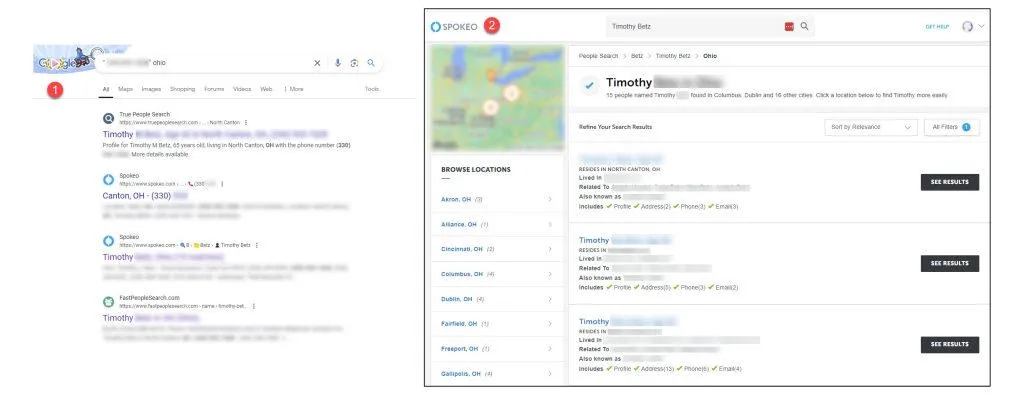
The free preview is pretty limited though, if you need more in-depth information, such as a background report, you may need to subscribe to their paid services.
Method 2: Reverse phone lookup with BeenVerified
If a web search leaves you empty-handed or you need more detailed information about the person behind the number, a reverse phone lookup service can be your next step.
In order to determine the most effective service, we extensively tested multiple reverse phone lookup providers, and BeenVerified stood out as the clear winner, providing higher hit rates and generally more detailed information than other services did.
![]() How to run a reverse phone lookup with BeenVerified:
How to run a reverse phone lookup with BeenVerified:
- Go to BeenVerified Reverse Phone Lookup.
- Enter the phone number you want to look up and click Search.
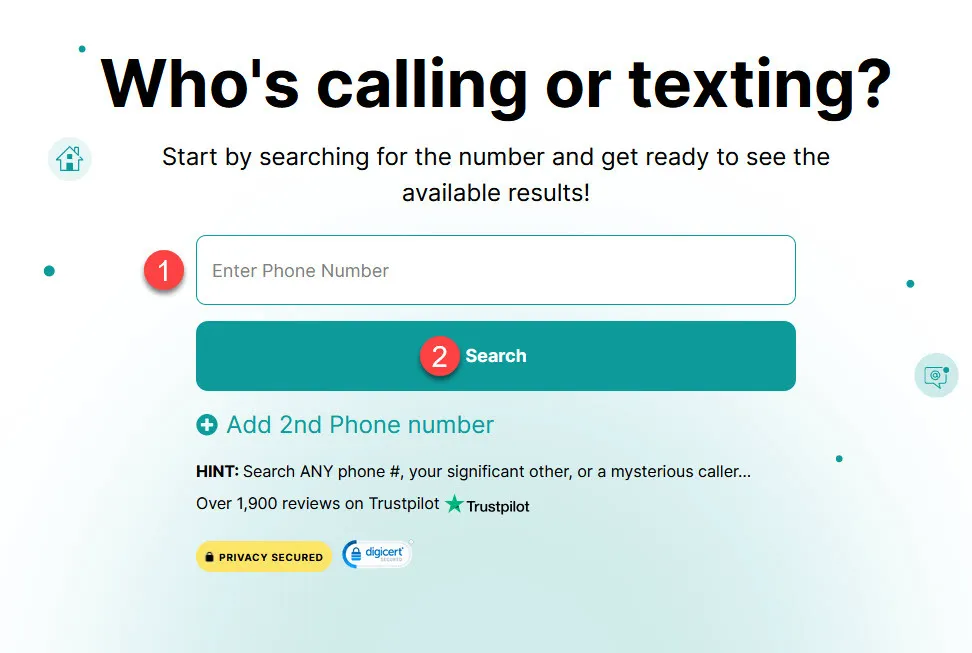
- Wait a short while as BeenVerified checks the phone number against its database to find matching records.
- Once it locates a match, it will gather associated records into a report. A typical BeenVerified report may include contact details, family information, job history, education, social media presence, and when available, criminal and traffic records (Membership needed for full access).

During our test, BeenVerified successfully identified the owners for 9 out of 10 randomly selected phone numbers. Notably, in one instance, when I initially searched a number on Google, it led me to a post where the person had shared their name, phone number, and street address for a dog adoption. However, running the same number through BeenVerified not only confirmed this basic information but also revealed that this individual had 16 criminal records on file. This level of detail, which isn’t typically available through a standard Google search, can be crucial especially when you’re dealing with unknown or mysterious text senders.
Another feature that sets BeenVerified apart is that it flags potential spam/scam numbers. This means that if you receive a suspicious text, you can run a search on the number. BeenVerified will then alert you if it’s a known spam/scam number, and even provide a nuisance caller times and comments section where other users share their experiences with the number.
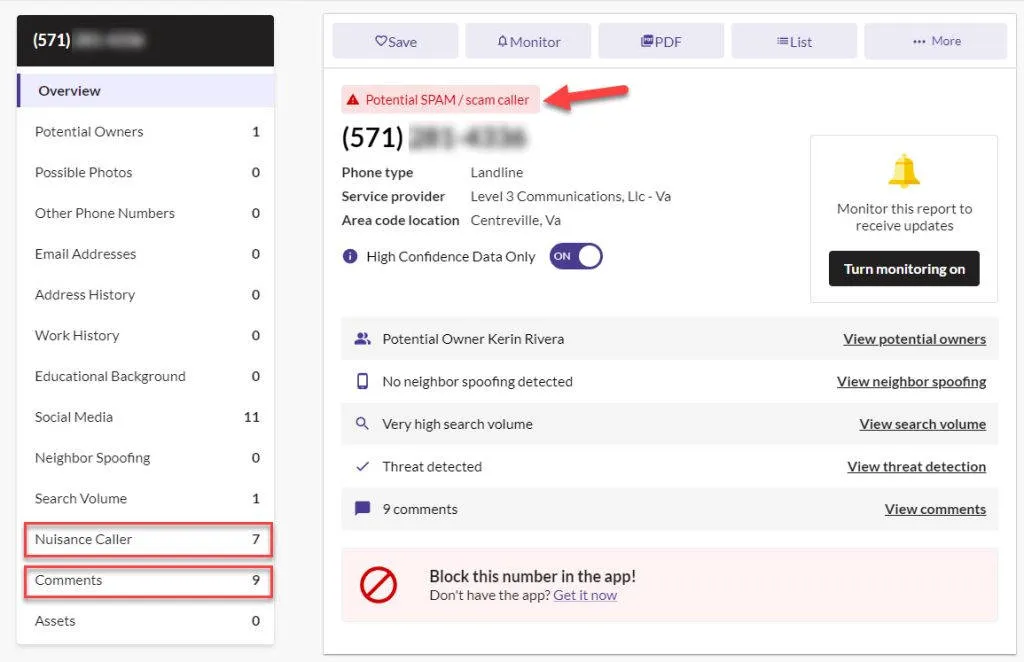
Method 3: Test on a money transfer app
Payment apps are used by millions of people for quick and easy money transfers. And when you try to send money to a phone number, these apps will typically display the recipient’s profile (name, username, and/or photo). This feature, designed to prevent accidental transfers, can be a useful trick to potentially find out who is texting you.
Here’s how to use this method:
- Open your preferred money transfer app (Venmo, Cash App, PayPal, Zelle, etc.).
- Look for an option to send money or add a new contact.
- Enter the unknown phone number.
- If the number is associated with an account, you might see a name, username, or profile picture pop up.
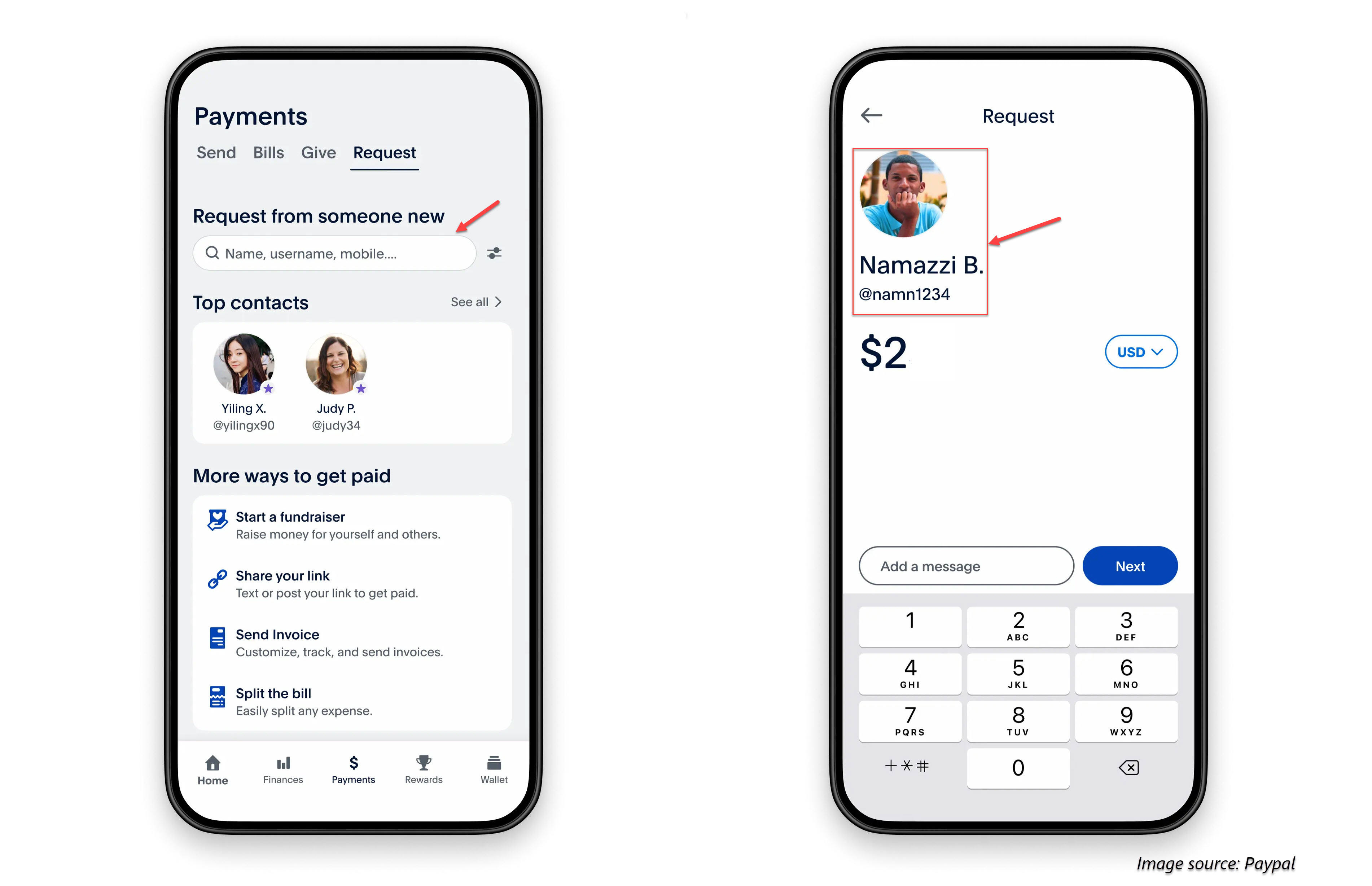
Method 4: Look for clues through social apps
Your smartphone isn’t just for texting—it’s also a powerful tool for uncovering the sender’s identity. Many of the social apps you use daily can provide valuable clues about the mystery text sender. These may include profile pictures, status updates, name, username, and other publicly shared details. All you need is to find their handles on these networks.
1) Check profile pictures from messaging apps
Many messaging apps – including WhatsApp and Telegram – allow you to search for users by phone number.
Here I take WhatsApp as an example:
- Open WhatsApp.
- Tap the Chats tab, then tap on the + icon and enter the unknown number in the search bar.
- If the number is associated with a WhatsApp account, you’ll see their profile picture (if set and made public) and status.
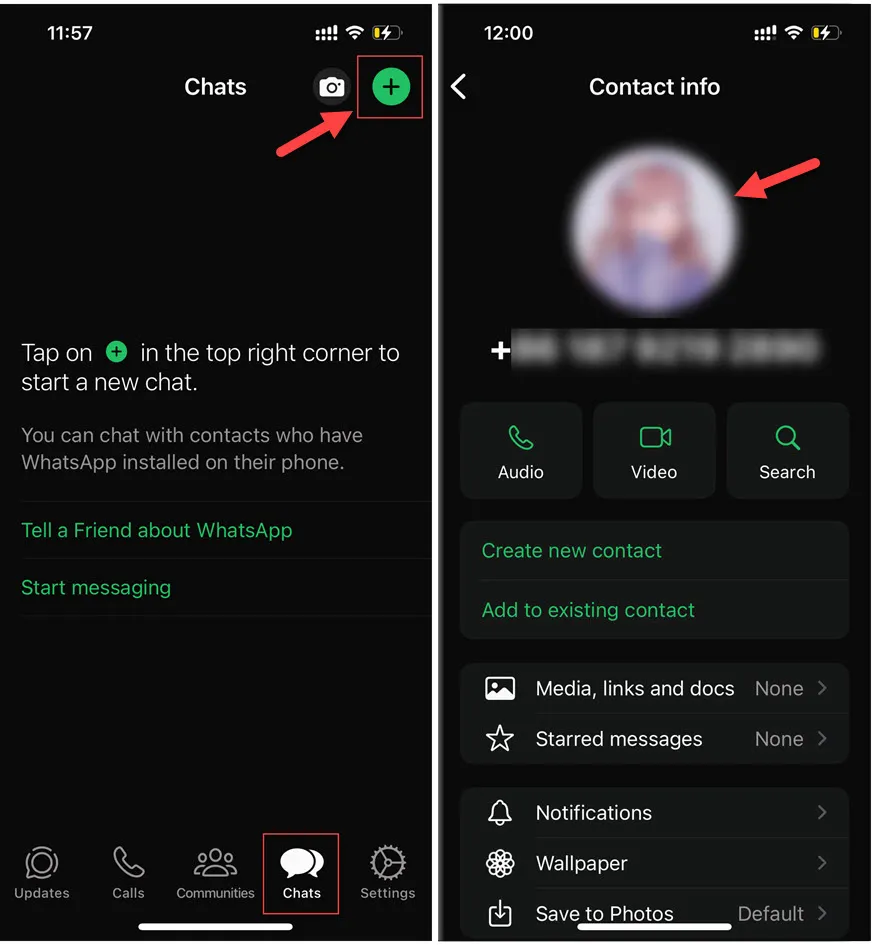
While this method may not directly give you a name or username, you may potentially get a profile picture. You can then perform a reverse image search using tools like Google Images or Social Catfish to potentially find other online occurrences of that photo, which might lead to more information about the person.
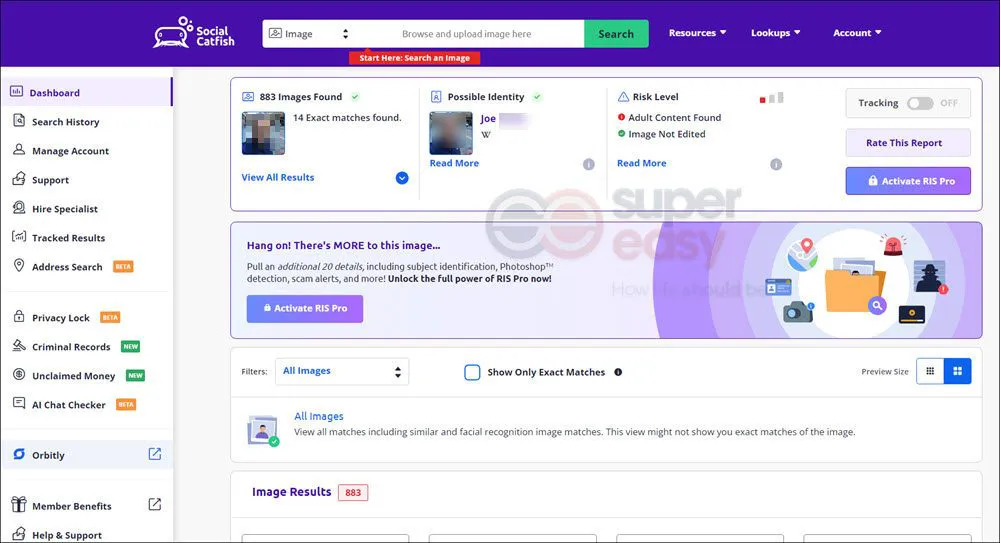
2) Make use of contact syncing
Many major social platforms (including Facebook, Instagram, X(formerly Twitter), Snapchat, and TikTok) offer contact syncing. This feature allows the app to access your phone’s contacts and match them against their user database.
So when you enable contact syncing, the app scans your contact list and suggests accounts that might belong to people you know. If the unknown number is in your contacts, the app might just reveal their associated social media profile. If successful, you might uncover the person’s name, username, profile photo, and even additional information from their profile.
Here I take Snapchat as an example:
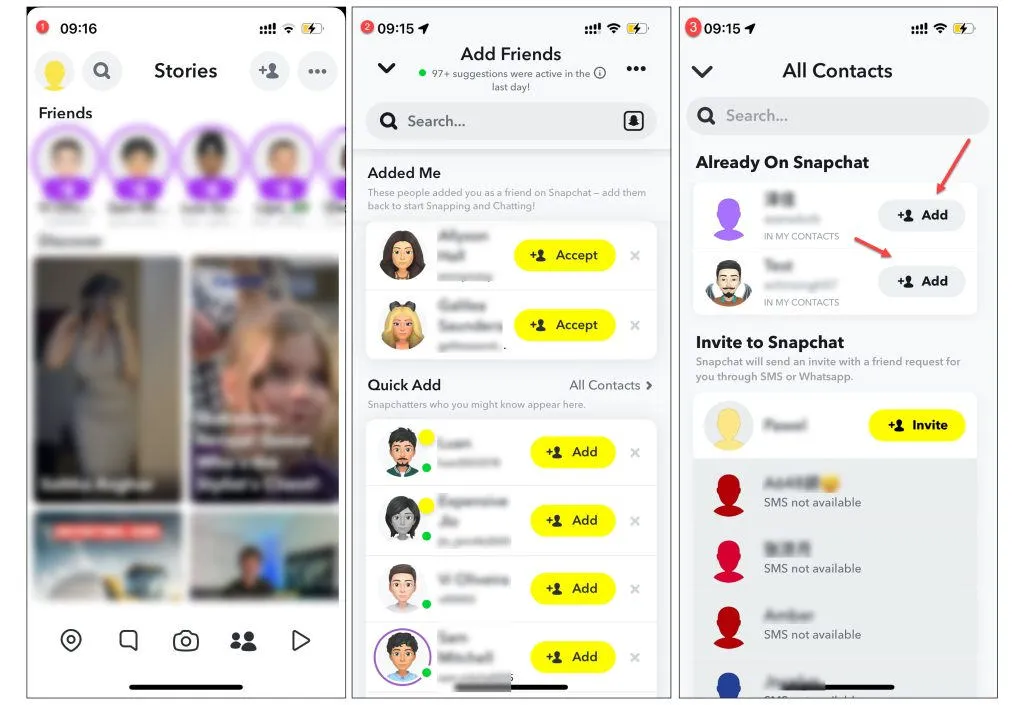
Is contact syncing always accurate?
No, it’s not 100% reliable. People change numbers, use different ones for various purposes, or might not use social media at all. Plus, syncing depends on the person’s privacy settings and how up-to-date your contact info is. It’s a helpful tool, but it has its limitations.
Method 5: Use a CallerID app
CNAM (Caller ID Name) is the name that appears on your phone screen when you receive a call or text. Although traditionally, this information was provided by your phone carrier, nowadays many third-party apps have emerged and extended beyond basic name display.
For example, running a phone number search in Truecaller may uncover:
- Name
- Location
- Type of number
- Profile picture
- Spam status
- Email address
if available.
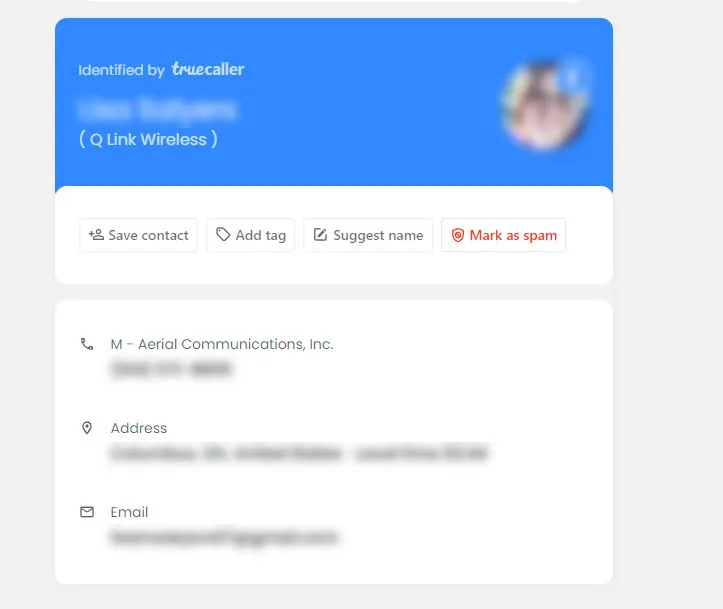
Method 6: Ask
Sometimes, the simplest solution is the most effective. If you’ve exhausted other methods or prefer a direct approach, you can always ask the sender who they are. Here are a few ways to go about it:
- Polite inquiry: A simple “Sorry, I don’t have this number saved. Who is this?” can often do the trick. Most legitimate contacts will be happy to identify themselves. Also, if it turns out to be an old friend who you genuinely don’t remember, consider a backup reply (Like sorry for having misentered their digits or getting a new phone).
- Call with a different number: If you’re uncomfortable using your primary phone, consider calling them using a disposable phone or a Google Voice number. Some people include their name or other identifying information in their voicemail greeting, or you can inquire about their identity without revealing your own number. Just be sure to hang up before leaving a message if you don’t want them to know you called.
Reverse phone lookup with SpyDialer
If you’re hesitant about direct contact but still want to ask, services like SpyDialer can be a useful middle ground. It allows you to hear the person’s voicemail greeting without actually calling them. Plus, SpyDialer offers name, photo lookup, and spam identification features, giving you more context before you decide to reach out directly.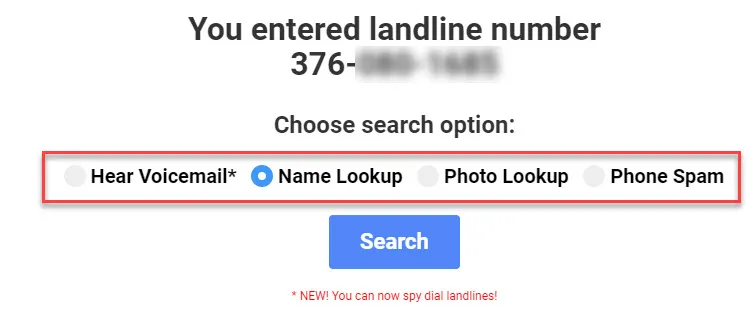
FAQs
- How can I deal with unwanted texts?
If you’re receiving unwanted texts, here are some steps you can take:
- Enable “Do Not Disturb” mode and whitelist only your contacts
- Install reputable spam-filtering apps (such as TrapCall)
- Contact your cell phone carrier about their spam-blocking services
- Report spam texts to the FTC (Federal Trade Commission)
- For harassment or fraud, resort to authorities for help
2. Someone messaged me about my partner cheating. What should I do?
Receiving an anonymous message about your partner’s infidelity can be incredibly unsettling. While it’s natural to feel torn between trusting your partner and the anonymous claim, remember that every situation is unique. An anonymous text isn’t automatically true, but it shouldn’t be dismissed outright either.
In such situations, an open and honest conversation with your partner is often a better approach than playing detective or spy games.
3. Why can’t I find the owner of a number?
There are several reasons why a number is hard to trace:
- Number characteristics: New or rarely used numbers are often hard to trace. This includes recently assigned numbers or those infrequently used online. Business lines, burner phones, and virtual or temporary numbers (like those from VoIP services or apps) can also be challenging to link to individuals.
- Privacy and security measures: Some people take active steps to keep their numbers private, such as opting out of public directories. Additionally, scammers often use spoofed or generated numbers that can’t be traced back to a real person.
- Technical and legal limitations Your search method might not have access to comprehensive databases, or some information may be behind paywalls. In some cases, legal restrictions in certain jurisdictions can limit what information is publicly available.
💡Did you know? In the US, when a phone number is deactivated, the time before it’s reassigned can vary widely. Some numbers might be reassigned almost immediately, while others could remain inactive for months or even years. This inconsistency in reassignment periods can sometimes lead to outdated or misleading information during phone number searches.
Remember, no single method is 100% effective. Sometimes, combining multiple approaches or using specialized services might yield better results.
Conclusion
Identifying an unknown texter isn’t always straightforward. Each method has its limitations, and there’s no guarantee of success. However, by combining multiple approaches, you increase your chances of uncovering the sender’s identity.
Remember:
- If you prefer a hands-on approach, start with simple, direct methods like conducting a web search.
- For a quick and easy way to gather detailed information and background reports, consider using a service like BeenVerified. It can provide in-depth information that might not be readily available through other methods.
- Gather more information to verify your findings.
- Use multiple methods to cross-reference and confirm what you discover.
Ultimately, the best approach depends on your specific situation. If the unknown texter is causing concern or seems suspicious, prioritize your safety and consider seeking help from authorities if necessary. On the other hand, if it’s likely a harmless mix-up, a simple inquiry might suffice.
Credits:
Image by pikisuperstar on Freepik
- r/RelationshipAdviceNow [spooky-character145]. (2023, May 4). I (F26) just received an anonymous text claiming that someone has been cheating with my partner (M28) what should I do? [Online forum post]. Reddit. https://www.reddit.com/r/RelationshipAdviceNow/comments/abcdefghijkl↩



 View all of Enya Zhang's posts.
View all of Enya Zhang's posts.




